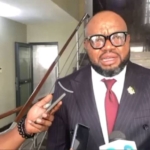
Ghana’s long-running energy sector challenges are seeing major progress, with the government renegotiating legacy arrears and power purchase agreements with most independent power producers (IPPs).
The IMF has confirmed that the reforms are beginning to deliver results, marking a turning point in a sector that has long burdened public finances.
The development came as the International Monetary Fund (IMF) concluded its fifth review mission of Ghana’s three-year Extended Credit Facility (ECF) programme in Accra.
The Fund said a staff-level agreement had been reached with the government, paving the way for the release of about $385 million once approved by the IMF Executive Board.
“The authorities made notable strides in addressing long-standing challenges in the energy sector. The government has renegotiated legacy arrears and power purchasing agreements with most independent power producers (IPPs).
“Tariff adjustments are now conducted quarterly, helping better reflect costs. Payments through the Cash Waterfall Mechanism have also increased significantly,” said Ruben Atoyan, head of the IMF mission to Ghana.
The IMF credited these measures with improving financial discipline in the power sector, which had previously been a major source of fiscal pressure.
The restructured IPP contracts and increased payments under the Cash Waterfall Mechanism are expected to reduce the buildup of new arrears while stabilising energy supply.
The Fund said Ghana’s overall macroeconomic recovery was also gaining strength.
“Macroeconomic stabilisation is taking root. Growth in 2025H1 was stronger than anticipated, underpinned by strong services activity and agricultural output,” Mr Atoyan stated.
He noted that international reserves accumulation continued to exceed programme targets, with the cedi appreciating significantly in the first half of the year.
The IMF also highlighted improved fiscal performance, saying Ghana recorded a primary surplus of 1.1 per cent of GDP in the first eight months of 2025 and remained on track to meet the 1.5 per cent target by year-end.
The Fund commended the government’s commitment to adopting a 2026 budget aligned with the Fiscal Responsibility Framework.
It further confirmed progress in Ghana’s debt restructuring, noting that bilateral agreements had been concluded with five countries under the G20 Common Framework, while negotiations continued with commercial creditors.
The Fund said Ghana’s debt outlook had “improved markedly on an upgraded macroeconomic outlook and continued fiscal discipline.”
The IMF team met with Finance Minister, Dr Ato Forson; Bank of Ghana Governor, Dr Johnson Asiama, and other officials during the mission.
“The IMF team would like to express its gratitude to the Ghanaian authorities and other counterparts for their warm hospitality and continued open and constructive engagement,” Mr Atoyan said.
The staff-level agreement, once approved by the IMF Executive Board, will bring Ghana’s total disbursement under the $3.2 billion programme to about $2.8 billion.




